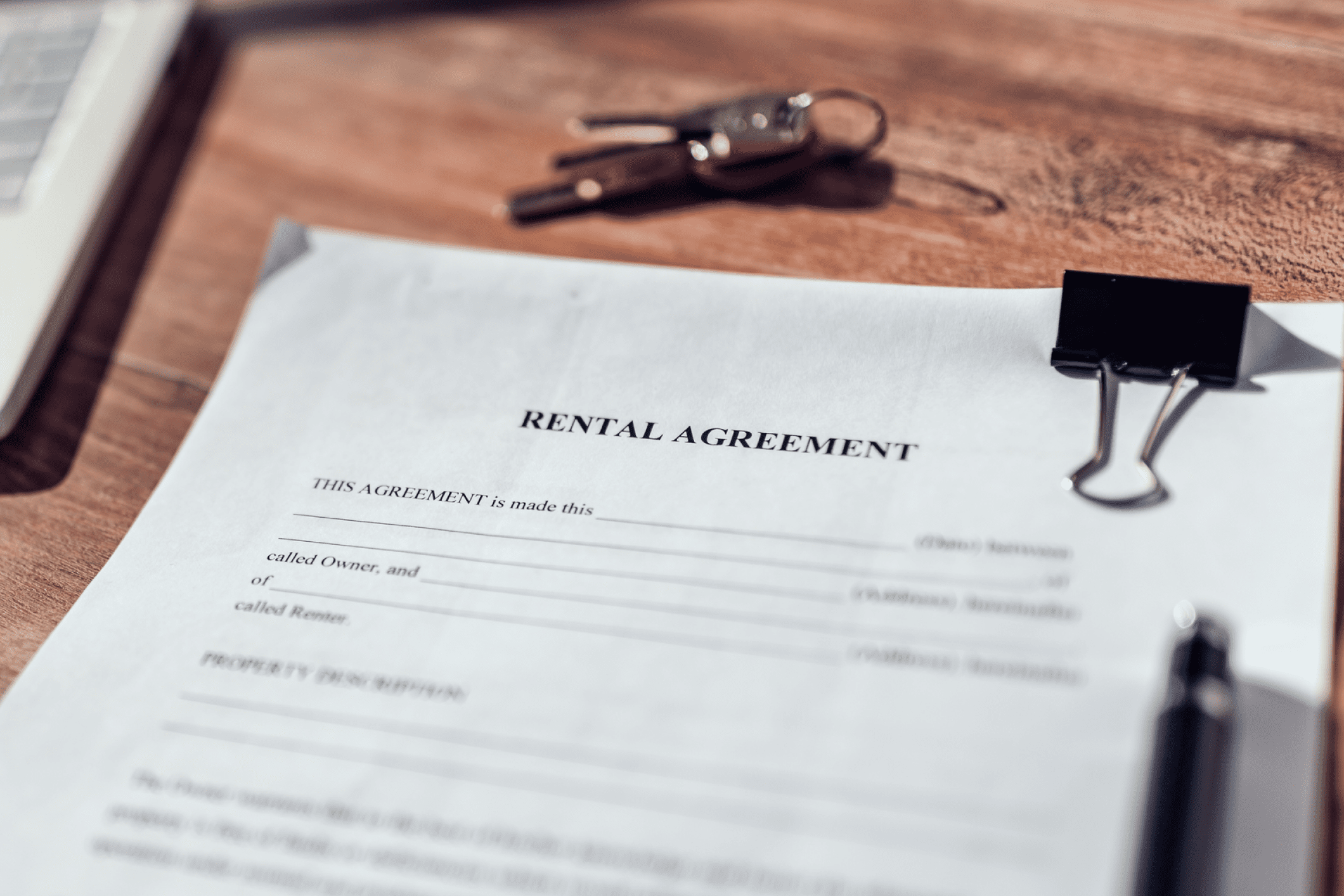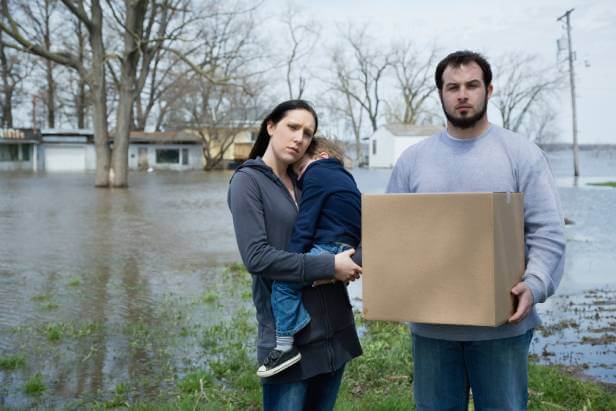Leases can be complicated
You should know what you’re getting into before signing a lease, and that means reading your lease in full, tedious as it may be, in order to avoid future disputes.
Most leases are standard, but they can be complex because landlord-tenant laws differ significantly by state and based on if you’re renting an apartment, a car, or other items.
Residential landlords will create lease terms that are favorable to them, so you should take the time to double-check the conditions to which you’re committing, especially if you’re going through rental search fatigue. If this is the 22nd apartment you’ve looked at in 3 weeks, your judgment may not be in top condition, so take the time for a careful read.
Take a breath, clear your head, and review the following clauses and subclauses.
1. Security deposit
A dispute with landlords over deposits is one of the most common tenant complaints. One month’s rent is standard for a security deposit, but it can vary based on a number of factors, including your credit score. If your credit is poor, a landlord may ask for two months’ rent upfront. Be sure to read the lease’s fine print carefully.
Know when you will be getting your security deposit back after moving out. A standard lease requires the landlord to release the money 30 to 60 days after you vacate the property if you have met the conditions stipulated. Don’t let a rental deposit dispute arise because you didn’t read your lease.
2. Termination date and renewal
The length of your lease and the conditions of your renewal options are essential to know before you sign. These vary depending upon the agreement between you and your landlord.
If your contract doesn’t require you to give the landlord 30 to 90 days’ notice of your lease renewal plans, a few different things can happen:
- The lease expires
- The lease transitions to month-to-month (along with a possible rent increase)
- The lease could auto-renew for another year if you don’t state otherwise
Your landlord is required to give you advance notice if they plan to raise your rent for the next leasing period, but the time frame depends on state requirements. Check to see if it’s roughly within the same period you’re required to give notice for renewal and get this squared away before you sign off.
3. Allowable occupants
The number of occupants allowed in an apartment may be restricted to a maximum, which affects whether you’ll be able to add people to the lease later on. Fire codes can limit the number of people allowed to sleep in a room. Condo and homeowners association rules may also restrict the number of occupants in a rental property.
If you want the flexibility of turning your living room into an extra bedroom down the line, you’ll want to get this confirmed right away.
4. Guest policy
How many days can someone stay at the property when they’re not on the lease? If you want a friend to crash on your couch e, bring it up before you sign. Many rental agreements restrict the number of days someone who isn’t on the lease can stay at the property. Make sure to notify the landlord of any long-term guests to avoid issues, like default or an increase in rent.
5. Subletting policy
Will you be allowed to break your lease early if circumstances require you to? If you need to relocate for a job, would you be able to find another renter to take your place and pay for the remainder of your lease according to the terms of the agreement?
Find out what the default is in your situation, whether it’s a buy-out clause (paying a penalty of x number of months’ rent) or exceptions with the landlord’s written permission.
6. Rent grace period
How many days will you have after your rent is due to pay without incurring a late penalty?
Find out if you’ll be charged a late fee, which could be a flat fee or a percentage of the monthly rent.
7. Renters’ insurance
Does the lease require renters insurance?
Even if it’s not specified in your lease, you may want to take out an insurance policy. You’ll be financially protected under emergency conditions (fire, robbery) and should your home become temporarily uninhabitable, additional living expenses may be covered.
Liability coverage is another protection often offered in your insurance policy. This protects you from paying out of pocket for costs incurred by injuries to other people, or damage to their property.
You’ll likely pay a deductible before the insurance kicks in. Do a little research into your renter’s insurance options and determine if it’s desirable as a safety net for you in the long run.
8. Access to the premises
Landlords have the right to check your property’s condition periodically, and with advance notice, they can show the rental property to prospective tenants if you’re not renewing your lease.
The landlord usually needs to provide 24 to 48-hour notice before entering the property. This should be stipulated in the lease, clarify before you sign.
9. Remodeling
Changes to the apartment without the landlord’s consent could result in legal repercussions, or the landlord could take the costs of restoring the property to its original condition out of your security deposit return or terminate your lease altogether.
10. Pet policy
Some apartments will allow pets without specific restrictions. However, consider restrictions as the default unless specified.
These can include:
- A one-time or monthly fee in addition to your base rent
- Restrictions based on the type of animal (breed, size, etc.)
Service animals are exempt under the federal Fair Housing Act.
11. Property fixtures
Are you viewing a unit with permanent appliances included in your rent, but also with removable fixtures, such as window shades, furniture, microwaves, and other household appliances? Make sure to confirm in your lease precisely what will be provided.
12. Is the property condition documented?
Before signing the lease, It’s a good idea to document the condition of the property. Also, don’t sign until you’re satisfied the property is in good condition, or at least until you feel secure that you know what you’re getting into. It’s not a typical practice for a renter, but it’s standard procedure for homebuyers to hire a professional for a home inspection.
13. Check that everything in the property works
Determine if there is any pre-existing damage and document any that you find so that you won’t be charged for it upon an inspection or when moving out. Ask for an itemized list of components in each room of the property (carpeting, electrical outlets, light fixtures, doors/locks, windows, painting, kitchen components, bathrooms, and their components) or create one yourself. Report what isn’t working to the landlord to be repaired by an agreed-upon date.
14. Is your new place safe?
Get a feel for your new neighborhood after dark. Take note of the details that matter to you: noise levels, vehicles near the property, police activity in the area, and see if you feel comfortable walking around in the area at night. Most apartment hunting is done during the day, but you need to feel at home whether it’s dawn or dusk.
15. Maintenance
When things break down in your apartment, you’ll want someone reliable to turn to for repairs. Find out if there’s a designated person who handles maintenance on the property. Think ahead to the winter or summer, depending on when you are t moving in. Heating issues can make or break you during the winter, as can cooling challenges in the summer, and you’ll want to get a good sense of how any problems are handled.
Among the many duties of a landlord is to repair the rental property and keep it an inhabitable condition for you, even if it isn’t explicitly stated in your lease. Heating, cooling, and plumbing problems should be handled within 24 hours of notice.
The building has to be maintained for structural integrity. Your apartment should be protected against pest infestation, roof leaks, the loss of hot water during the peak of winter, and other issues that might make the apartment uninhabitable. There are also minor problems that may be annoying for you as the tenant, but which the landlord isn’t required by law to fix. Due to the varying nature of landlord duties, you should consult local codes regarding rental properties in your state and city to see what is and isn’t the responsibility of the landlord.
Remember, nothing guarantees that your landlord will do everything they are supposed to do under the law – you may be faced with financial, emotional, and physical stress if important repairs aren’t made to your apartment in a timely manner, if at all.
LegalShield is here to assist you!
Landlord /tenant disputes often cause a significant amount of conflict and disruption. It’s in your best interest to know as much as you can before you sign a lease for your new property, to understand your rights and feel protected as issues arise.
LegalShield’s plans offer unlimited consultations to discuss your situation before you sign a lease and learn more about your laws and rights. Become a member now.
LegalShield provides access to legal services offered by a network of provider law firms to LegalShield Members through member-based participation. Neither LegalShield nor its officers, employees or sales associates directly or indirectly provide legal services, representation or advice. See a plan contract at legalshield.com for specific state of residence for complete terms, coverage, amounts, and conditions. This is not intended to be legal or medical advice. Please contact a medical professional for medical advice or assistance and an attorney for legal advice or assistance.





